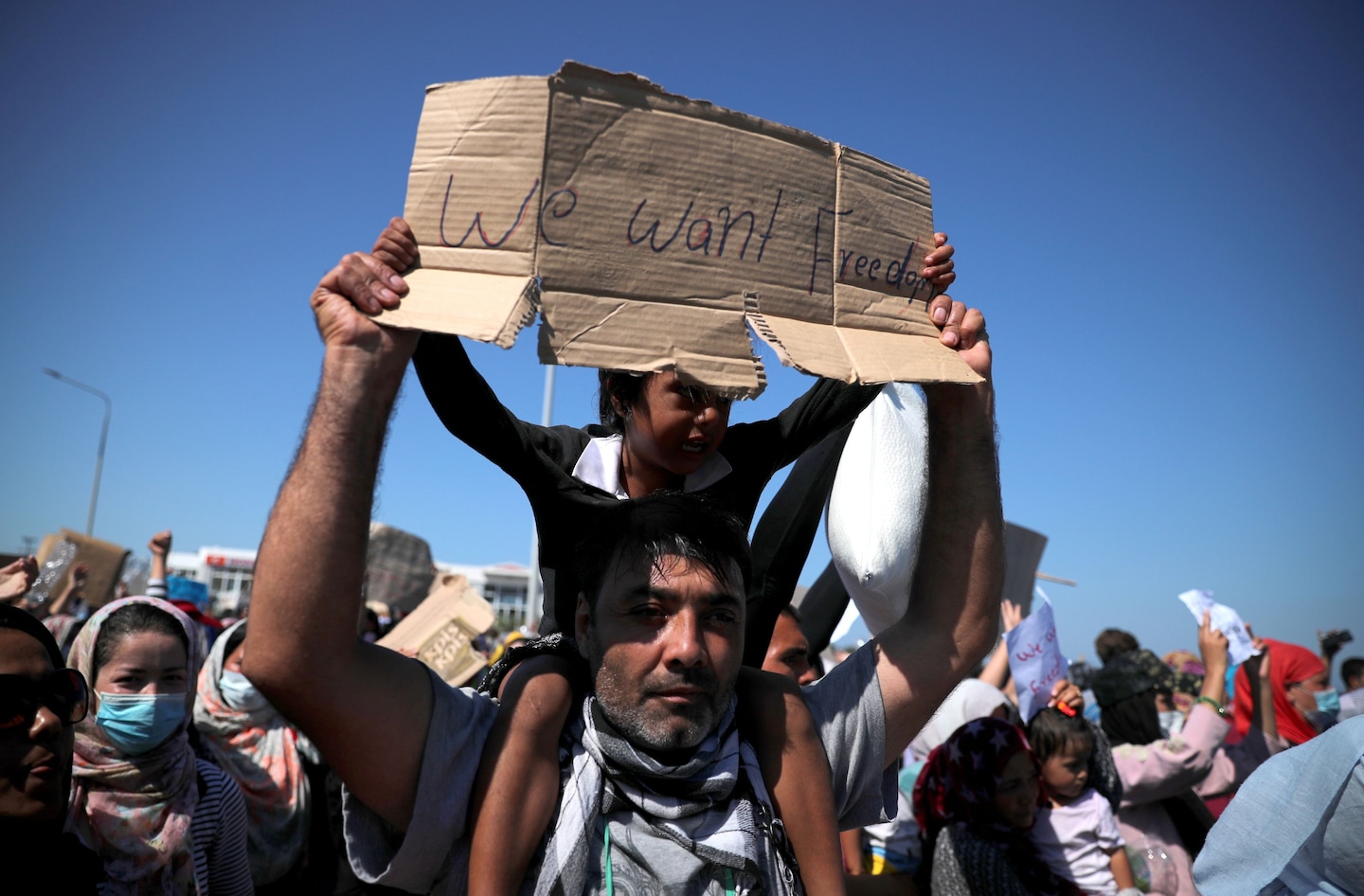Days after fires gut Europe’s largest migrant camp, thousands sleep outside

Advocates have called for the immediate relocation of residents to safer accommodations on Greece’s mainland or other European countries.
A fire first broke out Tuesday night in the overcrowded and squalid Moria asylum center, which housed an estimated 13,000 people but was built to hold only 3,000. Fires continued to burn Wednesday, destroying most of the camp. A police investigation to determine the cause is underway.
The camp, already isolated in response to the spread of the novel coronavirus, had been under increased quarantine since Sept 2, when Greek authorities confirmed Moria’s first case. As of Tuesday, 35 residents had tested positive for the virus.
The whereabouts of some coronavirus patients is unknown, said Nanou. Only eight of the 35 had been located, according to Greek authorities, who run the camp. One of the fires burned close to Moria’s covid-19 isolation center, and those inside it fled out of fear, said Nanou.
“We have advised all of those previously in the Moria camp, which was already under quarantine, to restrict their movements,” Nanou said. “The coronavirus pandemic makes it all the more complex and critical to implement safe responses.”
Combustible conditions
Moria’s residents included 4,000 children. By Friday, 10 European governments had agreed to take in 400 of the camp’s unaccompanied minors, through a European Union-supported relocation program set up in April in which 11 countries agreed to sponsor 1,600 children stuck in Greek camps. Before the fires, only 261 unaccompanied minors had been relocated as part of the agreement, Nanou said.
Nanou called Moria “a very urgent humanitarian situation right now.” But, she added, it “has been untenable for a very long time.”
Greece and Italy are hot spots for asylum seekers trying to reach Europe by way of the Mediterranean Sea. Migration rates have slowed in recent years, after the E.U. made deals with Libya and Turkey to stem the movement of people.
But European efforts to find a tenable solution for the tens of thousands of refugees stuck in Greece and Italy remain deadlocked. Cash-strapped Greece has called on E.U. members to take on more of the burden, while refugees continue to languish for years in limbo.
Many of Moria’s residents have fled political violence and socioeconomic collapse in Afghanistan, Iraq, Syria and conflict zones across Africa, said Faris Al-Jawad, a Doctors Without Borders spokesman. Moria’s unsafe conditions have added to preexisting traumas.
“Imagine you’re a survivor of torture and you’re living in a place with no protections … and no end in sight,” he said. “Many people just don’t know when this nightmare is going to end.”
The camp “was completely out of control and has been for a very long time,” he said.
Rebuild or relocate?
Greek authorities said they plan to build a new refugee center on Lesbos, a move that many of the island’s residents, along with refugee advocates, oppose. On Thursday, European Commission Vice President Margaritis Schinas toured the fire-ravaged site and said plans were in the works to build a new camp there, the BBC reported.
Meanwhile, Greece has sent three ferries to house about 3,000 people, according to the BBC. The United Nations is distributing around 2,000 tents and blankets, among other emergency provisions.
That leaves thousands of people homeless, without access to food, clean water, shelter or bathrooms, and without a clear plan — a dire situation made more dangerous by the coronavirus.
Al-Jawad dismissed plans to rebuild another Moria-like camp.
“We need these people to be moved to safe accommodations,” he said. “Funneling money into creating another Moria is not a solution.”






